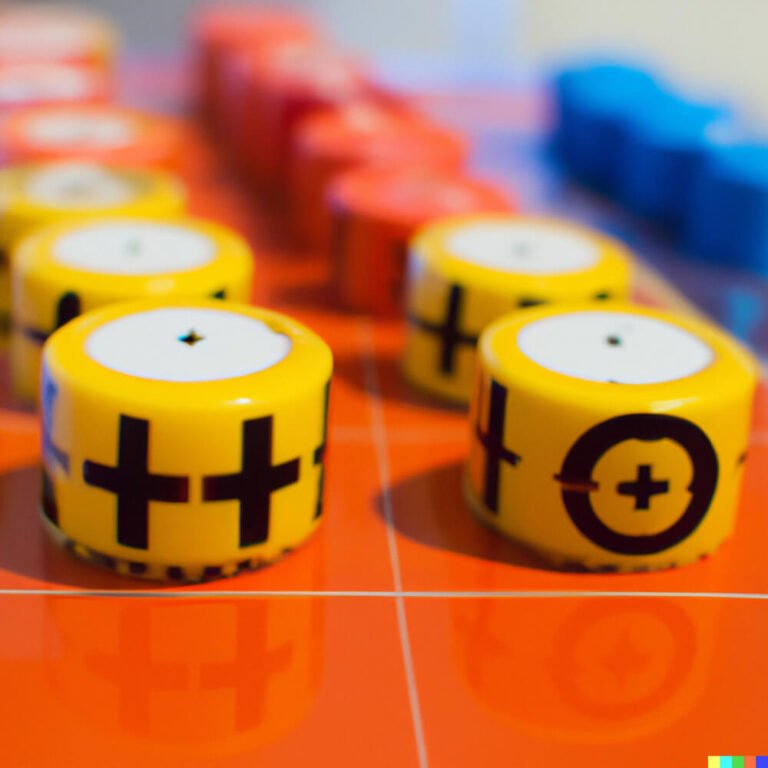Modern Classic Board Games have become a beloved form of entertainment for people of all ages. This article delves into the captivating world of these games, exploring their defining qualities and enduring popularity. With their timeless appeal and strategic gameplay, modern classic board games have captivated players for decades. As we delve into the fascinating history, unique characteristics, and social impact of these games, we uncover a thriving community and industry that shows no signs of slowing down.
Defined as board games that have stood the test of time while still remaining relevant in today’s gaming landscape, modern classic board games encompass a wide range of titles. From iconic classics like Monopoly and Scrabble to innovative gems like Catan, these games continue to capture the imagination and engage players across generations.
Whether it’s the thrill of outmaneuvering opponents with clever tactics or the enjoyment of gathering around a table for some face-to-face bonding, these games offer something special that digital forms of entertainment often lack.
The popularity of modern classic board games has only grown in recent years, resulting in a vibrant community and industry dedicated to their enjoyment. Game nights, tournaments, and conventions bring enthusiasts together to celebrate their shared love for these timeless favorites.
The rise of crowdfunding platforms has also given rise to independent designers who are pushing the boundaries of game design, ensuring that fresh and exciting titles continue to be introduced into this beloved genre. As we embark on this journey through the world of modern classic board games, we discover not just a hobby but a thriving subculture filled with passion, creativity, and camaraderie.
History of Modern Classic Board Games
The history of modern classic board games is a fascinating journey that has left an indelible mark on the world of gaming. From the iconic Monopoly to the beloved Settlers of Catan, these games have entertained and captivated players for decades. Understanding the origins and evolution of these games provides valuable insights into their enduring popularity.
Origins of Modern Classic Board Games
To truly appreciate modern classic board games, it’s important to look back at their beginnings. The origins can be traced back to the late 19th and early 20th centuries, when games such as Monopoly and Scrabble emerged. These early titles laid the foundation for what would become a flourishing industry.
Monopoly, created by Charles Darrow during the Great Depression, became an instant hit. The game’s mixture of luck and strategy appealed to players looking for an engaging way to pass the time. Scrabble, on the other hand, was invented by Alfred Mosher Butts in 1938 and quickly gained popularity as a word game that challenged players’ vocabulary skills.
Evolution and Innovation in Board Game Design
As board games gained traction, designers began experimenting with new ideas and concepts. In the 1980s, Klaus Teuber revolutionized the industry with his groundbreaking game, Settlers of Catan (originally released as Die Siedler von Catan). Settlers introduced innovative mechanics such as modular boards and resource management, setting a new standard for strategic gameplay.
In recent years, there has been a surge in indie developers pushing the boundaries of board game design even further. Games like Pandemic introduced cooperative gameplay where players work together to overcome challenges. Meanwhile, Ticket to Ride combined easy-to-learn rules with deep strategic choices set against a backdrop of building railroad routes across different regions.
This constant evolution in design has kept modern classic board games relevant and exciting. Designers continue to innovate, creating new games that captivate both seasoned players and newcomers to the hobby alike.
By exploring the rich history and evolution of modern classic board games, we gain a deeper appreciation for their enduring popularity. From the early pioneers like Monopoly and Scrabble to the groundbreaking designs of Settlers of Catan and beyond, these games have left an indelible mark on the world of gaming. In the next section, we will delve into the distinct characteristics that set modern classic board games apart from other forms of entertainment.
Characteristics of Modern Classic Board Games
Modern classic board games have gained immense popularity in recent years due to their unique characteristics that set them apart from traditional board games. These qualities contribute to the timeless appeal and enduring success of these games in the modern gaming landscape.
One key characteristic of modern classic board games is their emphasis on strategic thinking and decision-making. Unlike traditional dice-based games that rely heavily on luck, modern classics require players to employ various tactics and develop strategies to outwit their opponents. This element of strategy adds depth and complexity to gameplay, making each session a new and exciting challenge.
Additionally, modern classic board games are known for their high replayability value, thematic depth, and immersive experiences. Many of these games offer different paths to victory or multiple strategies to explore, allowing players to revisit them time and time again without feeling repetitive. Furthermore, these games often incorporate rich storytelling elements and engaging themes that draw players into the game’s world, enhancing the overall gaming experience.
To illustrate these distinct qualities, consider the example of “Ticket to Ride.” In this game, players assume the role of railroad barons in the early 1900s and compete to claim routes across North America by building trains. The strategic decisions involved in managing resources, connecting cities efficiently, and blocking opponents’ routes make each playthrough a challenging puzzle. Moreover, the captivating theme transports players back in time and immerses them in an era of railway expansion.
Must-Have Modern Classic Board Games
Settlers of Catan
Settlers of Catan, created by Klaus Teuber in 1995, is widely regarded as the game that ushered in the modern era of board gaming. In this strategic game, players strive to build settlements and cities while trading resources and negotiating with other players. The game’s modular board and constantly evolving strategy make each playthrough unique and engaging. Settlers of Catan introduced innovative mechanics such as resource management and trading, setting the stage for future modern classics.
Carcassonne
Carcassonne, designed by Klaus-Jürgen Wrede in 2000, is a tile-placement game that combines simplicity with depth. Players take turns laying tiles to construct medieval French landscapes, earning points by strategically placing their followers on roads, cities, and farms. Carcassonne captivates players with its tactical decision-making and intuitive gameplay mechanics. With various expansions available to enhance replayability, this classic is beloved by both casual gamers and experienced enthusiasts alike.
Ticket to Ride
Ticket to Ride, created by Alan R. Moon in 2004, takes players on a train adventure across different regions of the world. This family-friendly game presents a delightful balance between strategy and luck as players collect colored cards and claim railway routes to complete destination tickets. Ticket to Ride stands out due to its accessibility for new players while offering deeper strategic possibilities for seasoned gamers.
Pandemic
Pandemic, designed by Matt Leacock in 2008, revolutionized cooperative board gaming by immersing players into a race against time to save humanity from worldwide diseases. Working together as members of an elite team, players must strategize and collaborate effectively to prevent outbreaks and find cures before it’s too late. The cooperative gameplay and tense decision-making in Pandemic make it a must-have for those seeking thrilling and challenging board game experiences.
Dominion
Dominion, created by Donald X. Vaccarino in 2008, revolutionized the deck-building genre by introducing players to a dynamic card game where they construct their own unique deck during gameplay. Players start with a small deck of basic cards and strategically acquire new cards through purchasing or using specific abilities. Dominion’s endless combinations of card combinations and its blend of strategy, luck, and adaptability have made it a staple in many board game collections.
Codenames
Codenames, designed by Vlaada Chvátil in 2015 is a social word-guessing party game that challenges players’ communication skills and deduction abilities. In this team-based game, players take on the roles of spymasters, giving one-word clues to their teammates to help them identify secret agents among an array of code names on the table. Codenames seamlessly combines critical thinking with wordplay and creates an immersive experience that guarantees hours of laughter and collaboration.
Splendor
Splendor, created by Marc André in 2014, transports players into the world of gem merchants during the Renaissance period. Through resource management and strategic planning, players compete to acquire gem mines, transportation methods, artisans, and merchant development cards to increase their wealth and prestige. Splendor’s elegant simplicity combined with its deep strategic decisions has earned it widespread acclaim as an essential modern classic board game.
Azul
Azul, designed by Michael Kiesling in 2017, offers a visually stunning abstract puzzle experience centered around tile placement inspired by Portuguese designs. Players take turns drafting colorful tiles from factories to complete intricate patterns on their personal player boards while avoiding wasted pieces that penalize their final score. With its accessible gameplay and tactile components, Azul has become a beloved and celebrated game that rewards strategic thinking and planning.
7 Wonders
Released in 2010 by Antoine Bauza, 7 Wonders immerses players in a fast-paced civilization-building experience set in the ancient world. In this card-drafting game, players strategically choose cards representing buildings, military structures, scientific advancements, and more to construct their own powerful civilization. The simultaneous gameplay and multi-layered strategy make 7 Wonders an engaging choice for players seeking depth and replayability.
Terraforming Mars
Designed by Jacob Fryxelius in 2016, Terraforming Mars places players in charge of transforming the Red Planet into a habitable environment for humanity. Through resource management, card drafting, and area control mechanics, players compete to raise global parameters like temperature, oxygen level, and ocean coverage while constructing cities and greenery to earn points. The rich thematic immersion offered by Terraforming Mars combined with its intricate strategy make it an undeniably essential modern classic board game for ambitious space explorers.
These ten modern classic board games represent a diverse selection that captures the spirit of why these games have become timeless favorites among gamers of all ages and backgrounds. Whether you’re looking for intense strategy or light-hearted social interactions, these titles offer something for everyone to enjoy. With their enduring appeal and wide availability, they are ideal starting points for anyone interested in exploring the fascinating world of modern classic board games.
Modern Classic Board Games and Social Interaction
One of the most remarkable aspects of modern classic board games is their ability to bring people together and foster social interaction. Unlike digital games or solo activities, these board games provide an opportunity for face-to-face engagement, camaraderie, and bonding. Whether it’s a friendly competition or a cooperative game where players work together towards a common goal, these experiences create lasting memories and strengthen relationships.
Playing modern classic board games requires gathering around a table with friends or family members, creating a shared space for everyone involved. The physical presence of others adds an element of intimacy and connection that cannot be replicated through virtual interactions. It allows for non-verbal communication, eye contact, and the chance to observe social cues. These subtle interactions enhance the sense of togetherness and make the game sessions more enjoyable.
Moreover, playing board games can break down barriers and facilitate meaningful conversations. It provides an opportunity for individuals with different backgrounds, interests, and personalities to connect on a deeper level while engaging in friendly competition or collaboration. Board games serve as icebreakers that can ignite conversations and help forge new friendships. They offer common ground for people to come together regardless of age, gender, or cultural differences.
To illustrate the impact of modern classic board games on relationships, countless anecdotes and testimonials from players around the world highlight the positive influence these games have had on their lives. Many lifelong friendships have been formed over intense gaming sessions, while families have bonded through regular game nights. These stories showcase how engaging in this hobby can transcend mere entertainment value and become a catalyst for building connections in today’s increasingly digital world.
To fully embrace the social aspect of modern classic board games, it’s important to establish a welcoming environment during gameplay. Creating an atmosphere where everyone feels included, respected, and encouraged to participate ensures that each player has a positive experience. Additionally, hosting regular game nights or joining local board game groups can expand social circles and provide opportunities to meet like-minded individuals.
The Role of Technology in Modern Classic Board Games
Technology has undeniably transformed the world of modern classic board games, enhancing the overall gaming experience and introducing new elements to traditional gameplay. From digital adaptations to companion apps and online platforms, technology has added a layer of convenience, accessibility, and interactivity that has revolutionized the way these games are played.
One of the most notable ways technology has influenced modern classic board games is through digital adaptations. Many popular board games have been made available as mobile or computer versions, allowing players to enjoy their favorite games anytime, anywhere. These digital adaptations often offer additional features such as tutorials, AI opponents for solo play, and multiplayer modes for gaming with friends remotely. Digital adaptations also eliminate the need for physical components, making setup and clean-up a breeze.
Companion apps have also become increasingly common in modern classic board games. These apps complement the tabletop experience by providing additional content, tracking scores or game progress, and even integrating augmented reality elements into gameplay.
For example, some apps enhance storytelling in adventure-themed games by providing atmospheric sound effects or interactive storylines that unfold as players progress through the game. These apps bridge the gap between physical and digital gaming experiences, providing a unique blend of tactile interaction and technological innovation.
Additionally, online platforms have emerged as a popular way for players to connect and play modern classic board games with a wider community. Websites or applications dedicated to online board gaming allow players from different parts of the world to come together virtually and engage in multiplayer matches.
These platforms offer features like matchmaking services, chat functions for communication during gameplay, and leaderboards for tracking achievements. Online play not only expands the player base but also provides opportunities for learning from others’ strategies and finding opponents at any time of day.
While technology has undoubtedly enriched the experience of playing modern classic board games by offering convenience and new possibilities, it is essential to consider both sides of incorporating technology into traditional board gaming. Some purists argue that relying too heavily on technology can detract from the tactile nature and social interaction that make board games unique.
However, many game designers have successfully found a balance, embracing technology as a tool to enhance gameplay without overshadowing the traditional aspects that players love.
Unleashing Creativity
The process of designing modern classic board games is a fascinating and intricate one, requiring a unique blend of creativity, strategy, and innovation. Game designers are tasked with creating engaging experiences that captivate players and stand the test of time. In this section, we will shed light on the world of board game design, highlighting successful designers and their creations while also exploring how these games provide an outlet for imagination and innovation.
Board game design begins with an idea or concept that is then developed into a playable prototype. Designers must carefully consider various aspects such as theme, mechanics, components, and player interaction in order to create a cohesive and enjoyable experience. The designer’s goal is to strike the perfect balance between challenge and fun, providing players with meaningful choices and strategic decision-making opportunities.
Throughout history, there have been many influential designers who have made significant contributions to the world of modern classic board games. One notable example is Klaus Teuber, the creator of Settlers of Catan.
His innovative game introduced a modular board system that created a dynamic gameplay experience with endless possibilities. Alan R. Moon is another renowned designer known for his work on Ticket to Ride, a game that combines simple mechanics with engaging gameplay to create an accessible yet strategic experience.
Designing modern classic board games allows designers to unleash their creativity and bring their ideas to life. These games provide an outlet for innovation and experimentation, allowing designers to push boundaries and challenge traditional conventions in game design. By embracing new themes, mechanics, and components, designers can create unique experiences that resonate with players on a deep level.
The Future of Modern Classic Board Games
The board game industry has experienced a remarkable resurgence in recent years, with modern classic board games becoming increasingly popular among both casual players and avid enthusiasts. As we look to the future of this beloved form of entertainment, it is intriguing to explore the emerging trends and make predictions about what lies ahead for modern classic board games.
One notable trend that we can expect to see in the future of modern classic board games is the incorporation of more diverse themes and settings. While traditional themes like fantasy and historical settings have dominated the market for decades, there is a growing demand for games that explore unique and underrepresented themes. We can anticipate an increase in board games that delve into different cultures, time periods, and even current events, providing players with new and immersive experiences.
Another trend that will likely shape the future of modern classic board games is greater emphasis on inclusivity and accessibility. Game designers are becoming more aware of the importance of creating games that can be enjoyed by a wide range of players, regardless of age, gender, or level of experience. This means incorporating intuitive mechanics, streamlined rulebooks, and adjustable difficulty levels to ensure that everyone can participate and have a fulfilling gaming experience.
Technology will undeniably play a significant role in shaping the future of modern classic board games. While some purists may argue against incorporating technology into traditional tabletop gaming, it cannot be denied that technology has opened up new possibilities for enhancing gameplay experiences.
We can anticipate more companion apps that add digital elements to board games, as well as online platforms where players can connect with others from around the world. However, striking a balance between analog and digital is crucial to preserve the tactile experience and social interaction that make traditional board games so special.
Conclusion
In conclusion, modern classic board games offer a timeless entertainment option that continues to captivate players of all ages. These games have stood the test of time, with their enduring appeal and ability to bring people together. The growing community and industry surrounding modern classic board games only serve to reinforce their popularity.
One of the key factors that sets modern classic board games apart is their distinct qualities. These games require strategic thinking and decision-making, offering a level of engagement that keeps players coming back for more. Additionally, elements such as replayability, thematic depth, and immersive experiences contribute to the lasting enjoyment these games provide.
Whether it’s gathering around a table for game night with friends or family, or exploring new strategies with fellow enthusiasts in dedicated gaming communities, the social aspect of modern classic board games cannot be overlooked. These games foster face-to-face interaction and bonding, providing a shared experience that strengthens relationships.
As technology continues to evolve, it has also made its mark on the world of modern classic board games. Digital adaptations, companion apps, and online platforms have enhanced the gameplay experience in various ways. While there are pros and cons to incorporating technology into traditional board games, it opens up new possibilities for accessibility and innovation within the hobby.
Looking towards the future, trends in board game design suggest exciting possibilities for modern classic board games. Emerging themes, mechanics, and cultural shifts will shape the landscape of this industry in years to come. It is an exciting time to explore this hobby and witness first-hand how it evolves.
In summary, modern classic board games offer an enduring source of joy and bonding for players across generations. Whether you’re already a fan or just discovering this captivating world of tabletop entertainment, there are countless options waiting to be explored. So gather your friends or family members for game night or immerse yourself in online gaming communities – now is the perfect time to get started with modern classic board games.

I love playing all kinds of games – from classics like Monopoly to modern favourites like Ticket to Ride.
I created this blog as a way to share my love of board games with others, and provide information on the latest releases and news in the industry.





